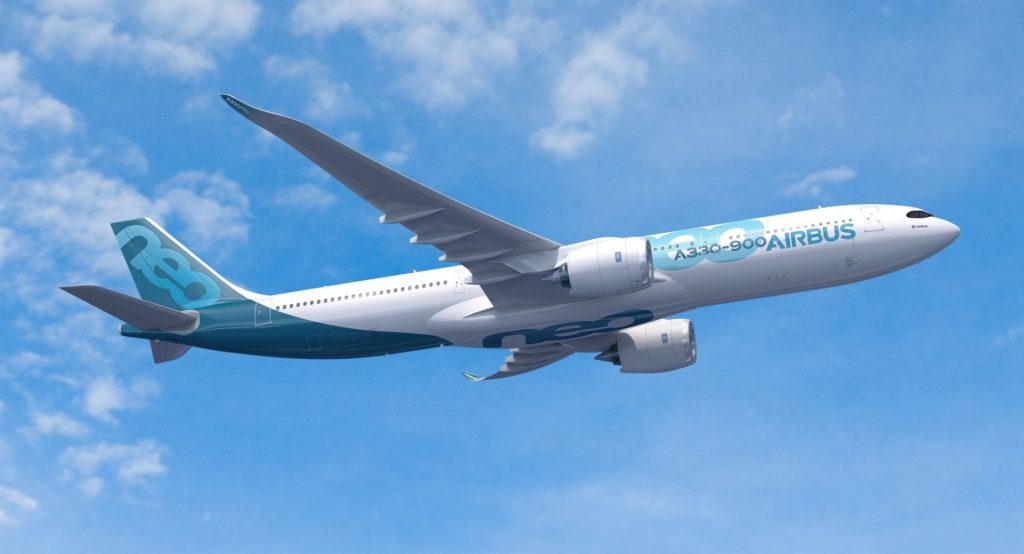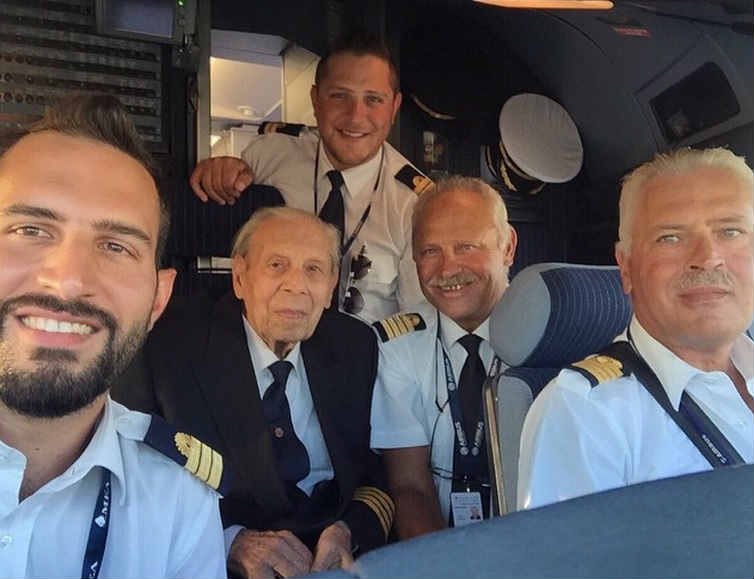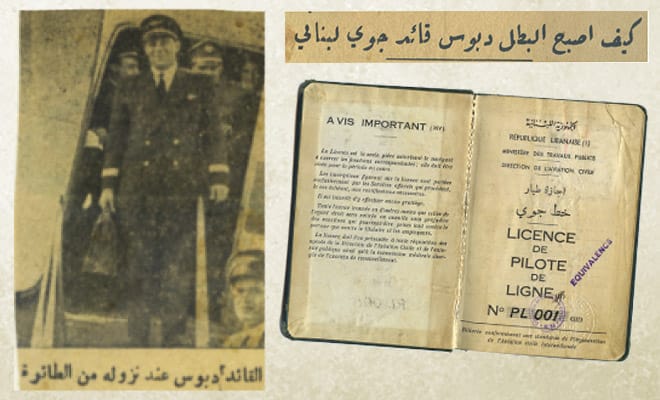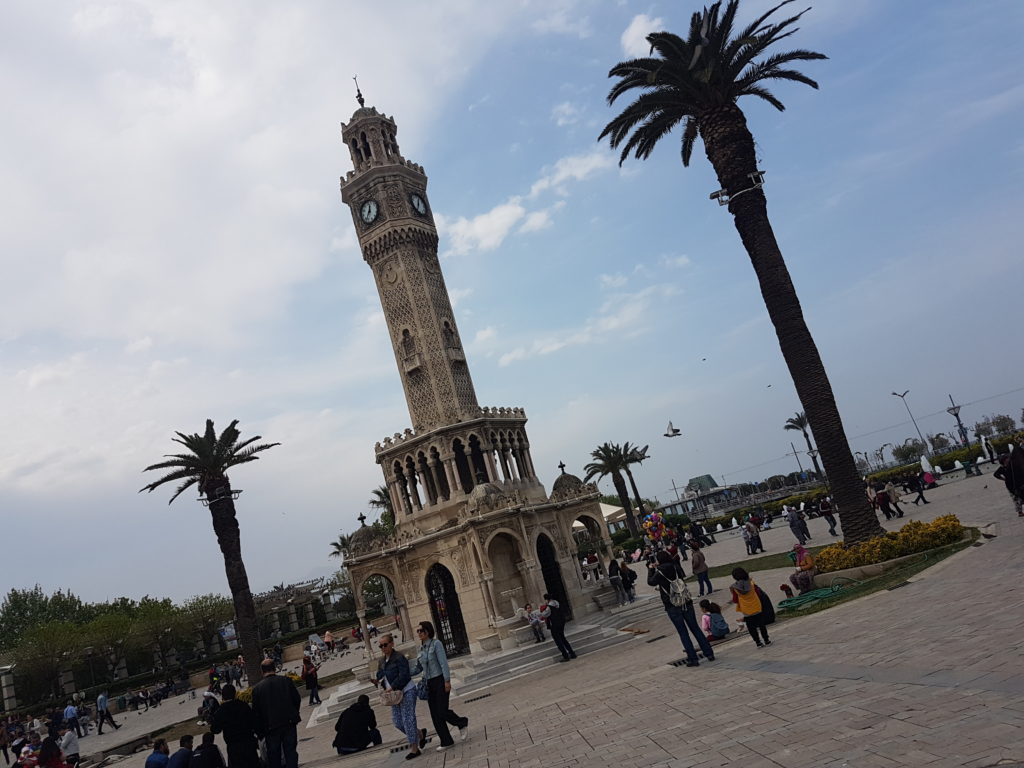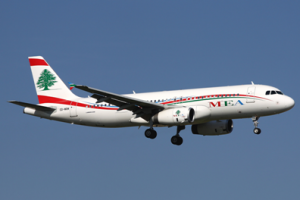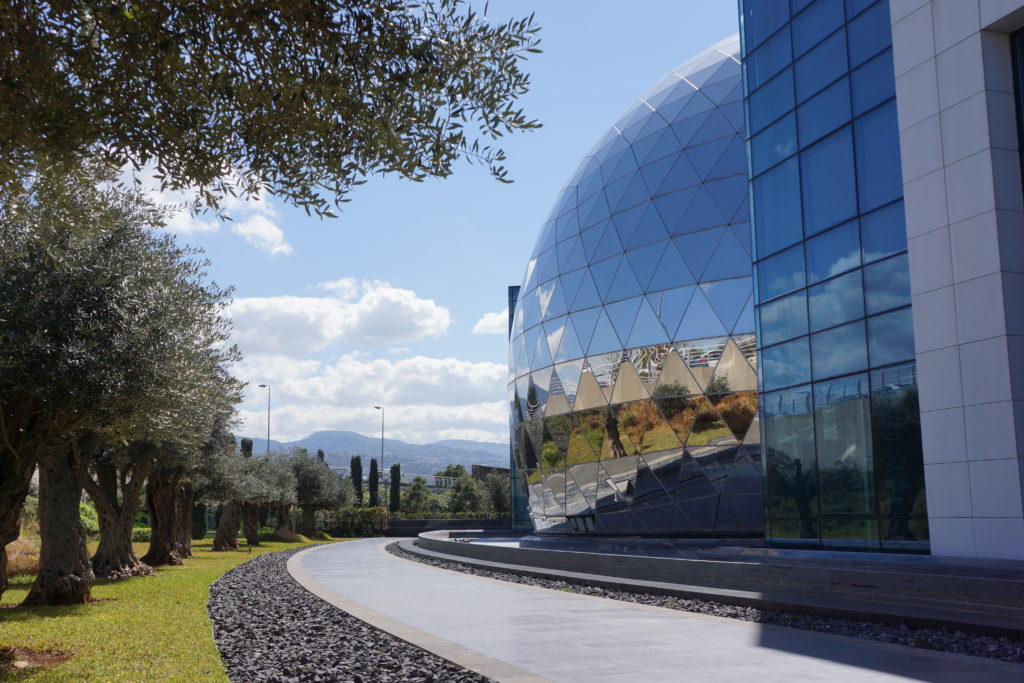
On the way to airport, and just before you reach its entrance, you can’t but notice “The Dome”. This intriguing structure is part of the Middle East Airlines Training and Conference Center, where their staff get most of their training at. And since I have always felt curious to know how would it be like inside such training facility, I simply contacted someone I know there a couple of weeks ago to check if I can visit the center.
A few days later, the the cool people at MEA quickly arranged an appointment for me to tour the facility and I was lucky to be accompanied by one of their engineers, a training manager, and of course a communications officer.
I think people know very little about the things that happen behind the scenes at an airline, so here’s everything I saw at the 43,500 m2 MEA training center.
Flight Training
First things first. When I initially asked MEA to visit their training center I was mostly interested in checking the equipment that help their pilots achieve their flight training, so the tour started by first visiting the available simulators.
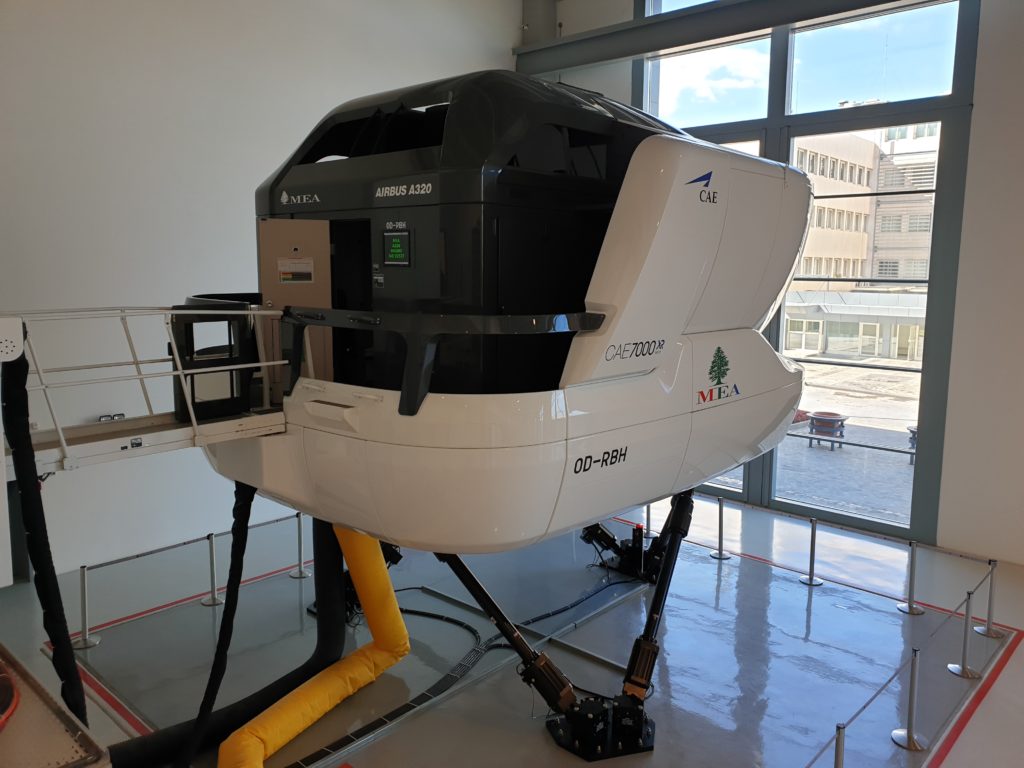
MEA currently has a full motion Airbus A320 flight simulator, and two other fixed-base simulators. As you can see below, the full motion simulator gives the same feeling as being inside a real cockpit with the surrounding screens displaying very realistic scenes. It can simulate turbulences and any required weather condition, and once you’re inside you simply feel like you’re in a real flight due to all the movement feedback that the device provides. Training on this simulator counts like flying a real airplane for the pilot and it is the only one of its kind in the middle east, that’s why pilots from other airlines in the region come to Lebanon to train on it.
There’s currently only 1 full motion simulator but the space where it is installed can actually accommodate 3 others. I heard they might soon be getting additional ones but I couldn’t figure out of what model series.
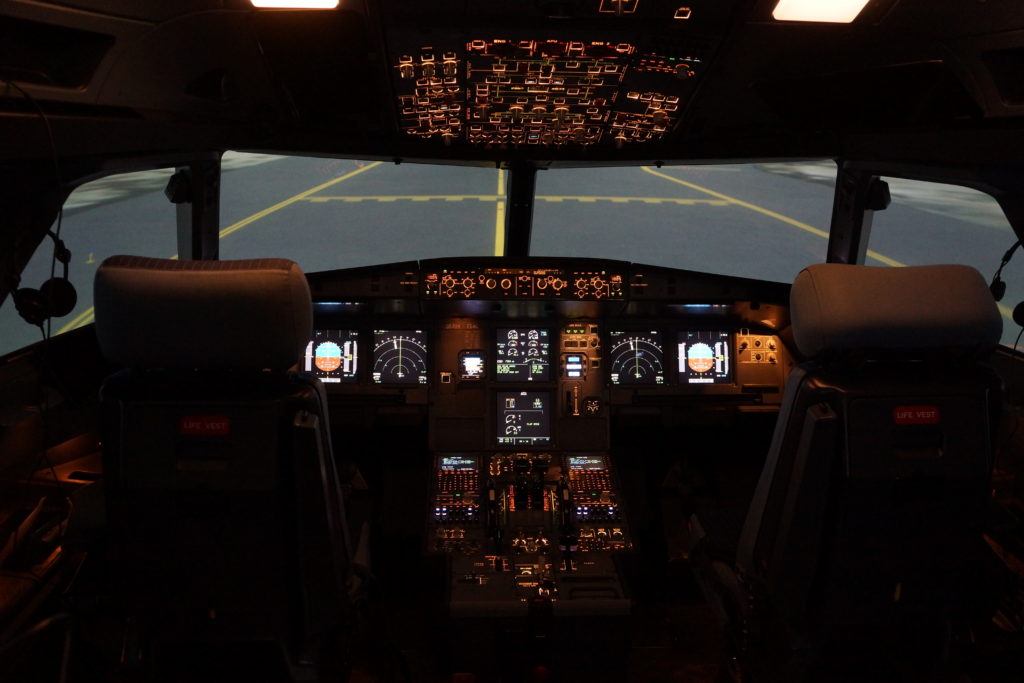
The other two fixed-base simulator are for the Airbus A320 and A330 but they of course don’t feel as real as the one above.
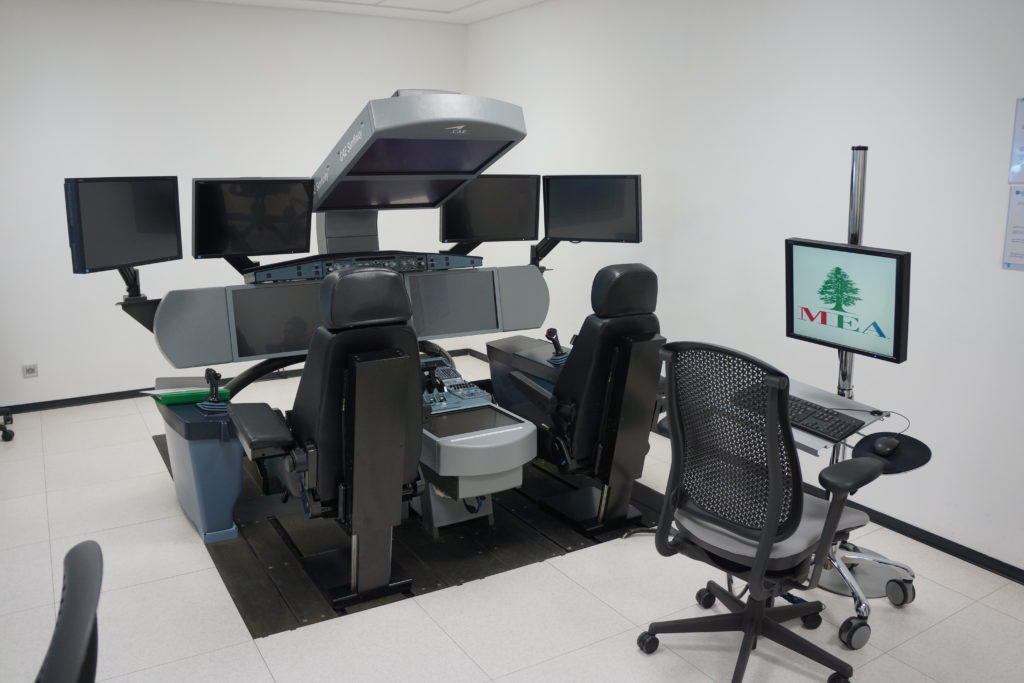
In addition to the simulators, the center has 20 stations for CBT (Computer Based Training) as well as a facility for pilot’s license renewal. As I was informed, pilots should undergo certain tests every 6 months to renew they licence and the MEA has a dedicated accredited facility for that.
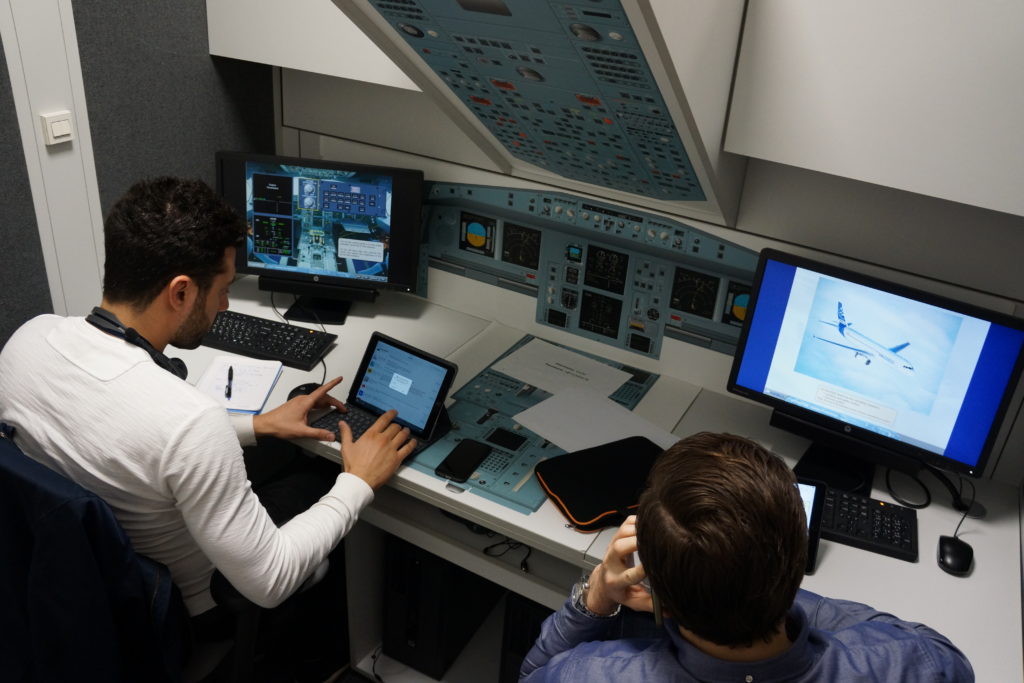
Cabin Crew Training
My second stop was at the division where the cabin crew are trained. Again, real airplane models are used with simulators to train the crew on several evacuation scenarios including jumping into an adjacent swimming pool.
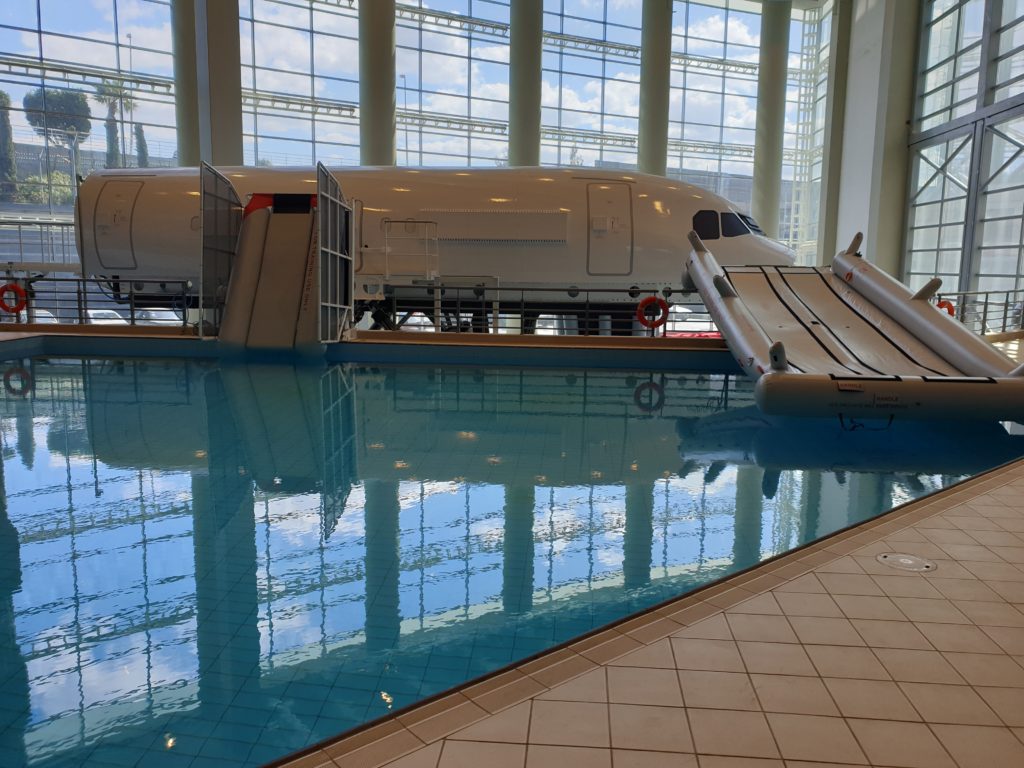
The material inside the airplane mockup (photo below) are the same that are used in a regular Airbus, while the windows are in fact screens that can simulate different scenarios like a fire, cracked window, emergency landing, etc… and according to each situation the crew is trained on a course of action. Note that the pilots get similar training in order to be able to cope with incidents inside the cockpit.
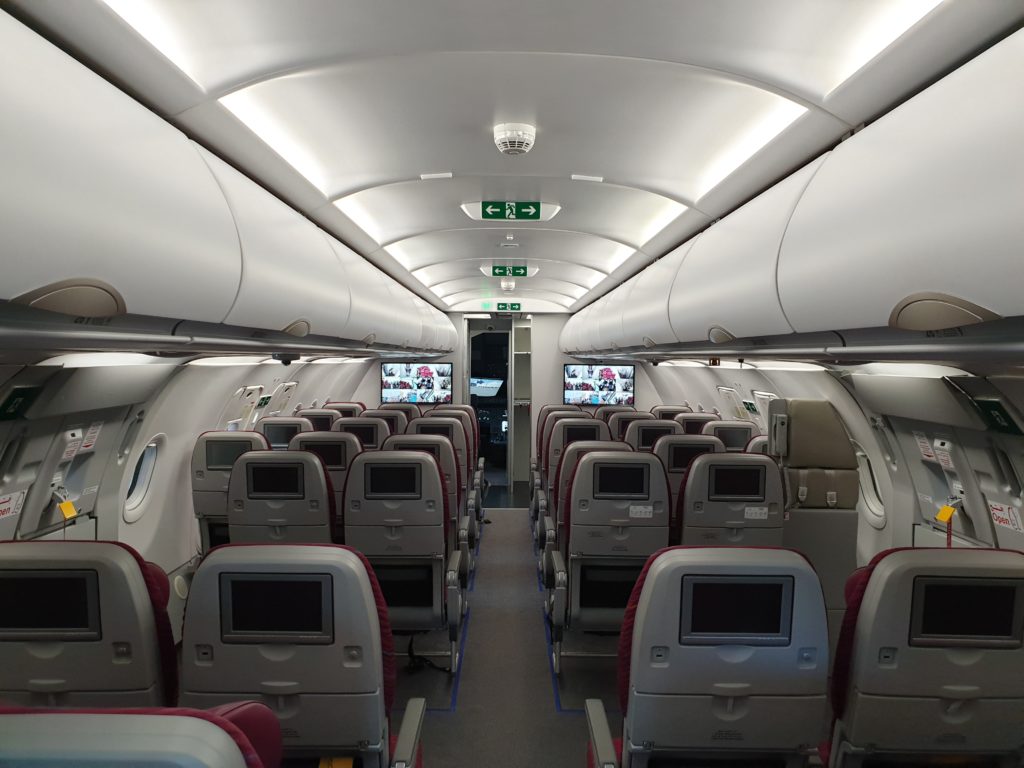
The Conference Center
Apart from the available training facilities, the building has many conference areas. People are probably familiar with the Riad Salaeh auditorium (also known as The Dome) since it shows in the news every now and then, but there’s also a much larger hall, The Mohammad Al Hout hall, which extends over an area of 680 m2 and has a very large attached kitchen to it in order to serve the events.
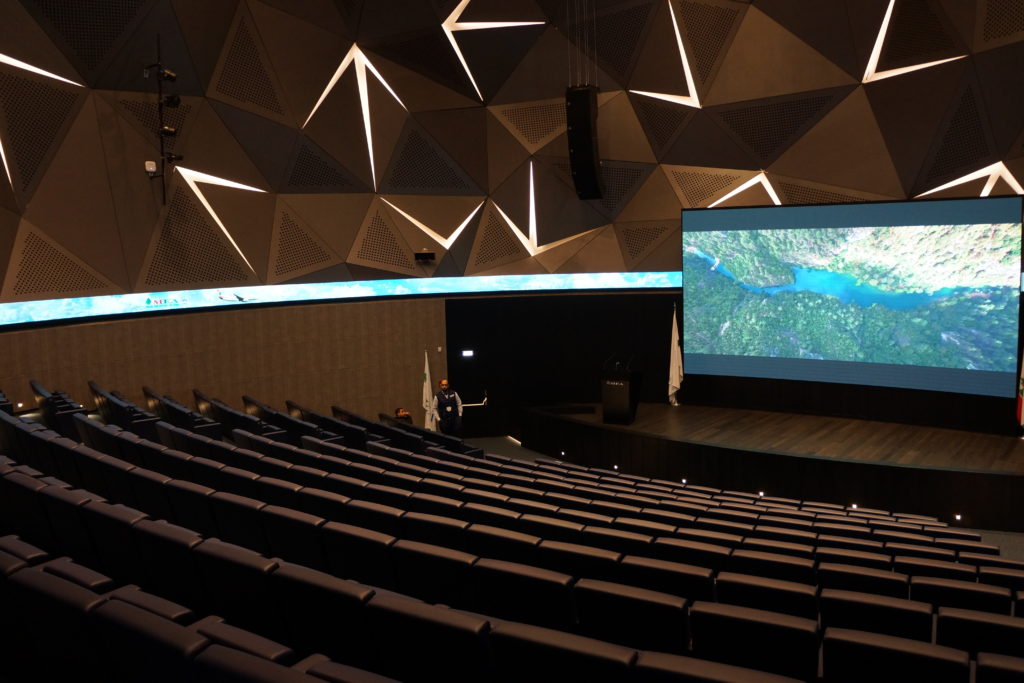
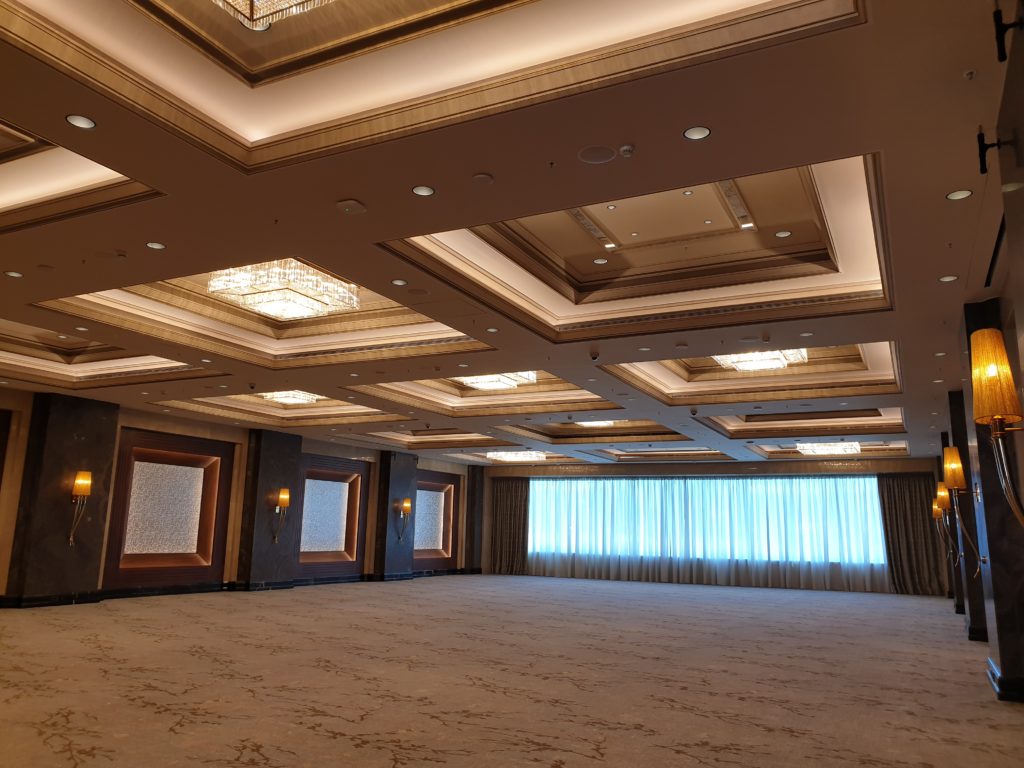
The conference zones of the center can host various events and are therefore not for the exclusive use of MEA as they can be rented to any company willing to host an occasion or event.
The same also applies to the training areas since other airlines in the region pay the MEA sometimes to use the center in order to train their staff. Some of the airlines that recently used the facilities are Cyprus Airways, Air India, and Turkish Airlines. So basically the whole center contributes in generating additional income to the MEA.
All in all, I really enjoyed the tour and it felt cool getting exposed to the aviation world with all the info that experts were telling me. More importantly, it was also nice to know that a center of such caliber does exist in Lebanon and serves regional airlines from neighboring countries.

